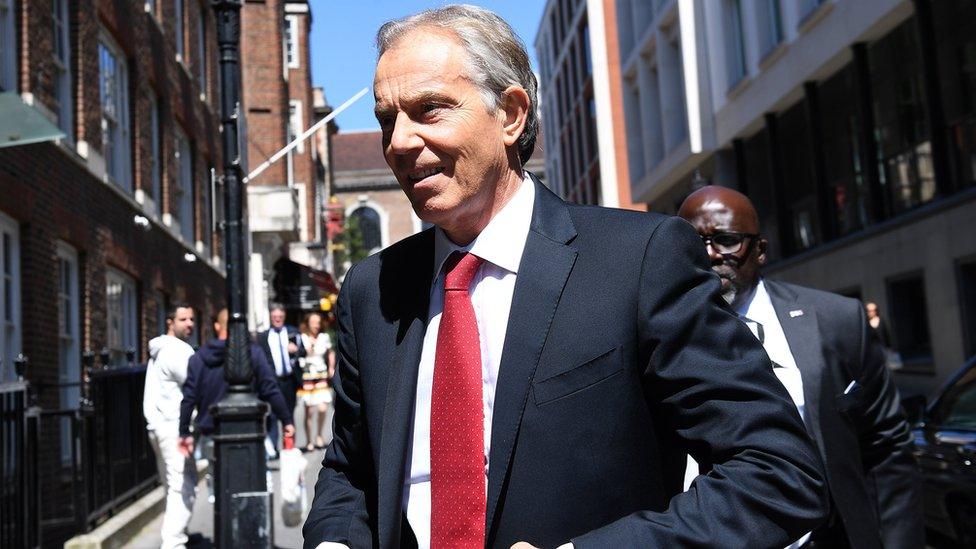Brexit: Date of departure could be delayed, says Blair
- Published

The UK's exit from the EU next March could be delayed to allow for further negotiations and the public to make the "final decision", Tony Blair has said.
As a longstanding critic of Brexit, the former prime minister said talks were "drifting" and may have to continue beyond next March's exit date.
He also said if the EU reformed its migration rules the UK could stay in "with dignity".
The Brexit date is now enshrined in law after the EU Withdrawal Bill's passage.
Prime Minister Theresa May has insisted the UK will cease to be a member from 29 March 2019.
Extending the Article 50 process, the two-year legal framework under which the UK is leaving the EU, to allow for more talks would require the approval of the UK government and all 27 other EU members.
In a speech at the Chatham House think tank in London, Mr Blair said he believed Brexit "can and should be stopped" and criticised the UK's negotiations.
"Up to now, the negotiation with Europe has been conducted by civil servants in a state of despair overseen by politicians in a state of denial," he said.
He said the prime minister was "more hostage than leader" because of divisions in her party and the Labour leader is "neglecting to lead the fight"
"We should plan now for the possibility we need to extend the March 2019 deadline," he said.
"Presently, we are drifting... with no clear negotiating position, no resolution of the Northern Ireland question, still vaguely hoping Europe will allow us access to the single market without abiding by its rules, which it will never do."
He likened talk about the prospect of the UK leaving without an agreement - which several cabinet ministers have said must remain an option - to "holding a negotiation on the top floor of a high-rise building and 'threatening' to jump out of the window if our demands are not met".
Mr Blair also said the EU should recognise people's concerns over issues like migration which he said led to the Brexit vote, claiming a fundamental offer of reform would allow the UK to "stay with dignity" inside the bloc.
He added: "The sensible thing - maybe this is too rational a view for today's world - is for Europe to realise that the Brexit vote represented a feeling that is not specifically or exclusively British.
"That's what all these elections have shown over the last few months. This is a European-wide feeling, it's just that Britain had the referendum."
Both Mrs May and Mr Corbyn have ruled out another referendum, saying their task is to implement the wishes of the British people, who voted by a majority of 51.9% to 48.1% to leave in the 2016 referendum.